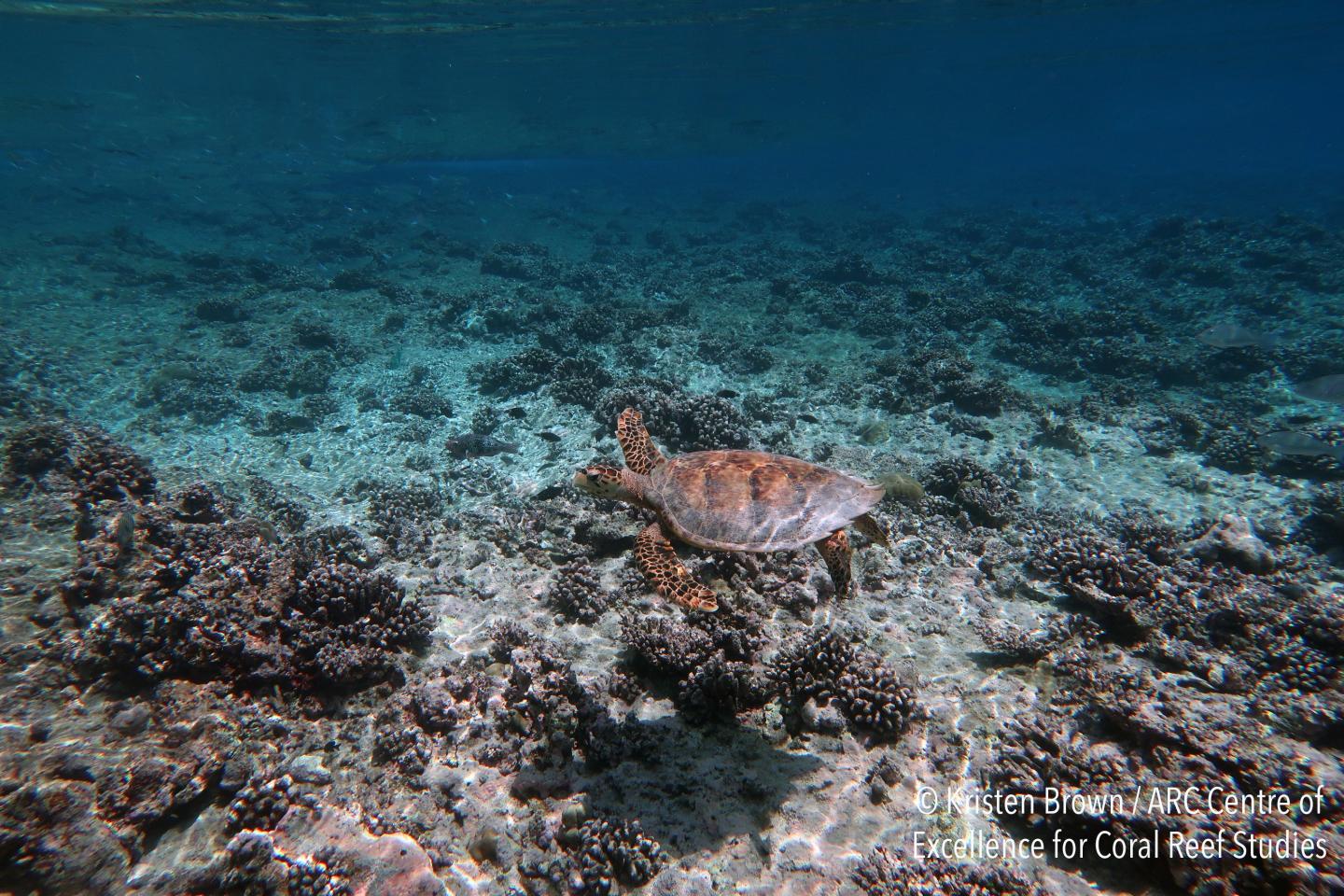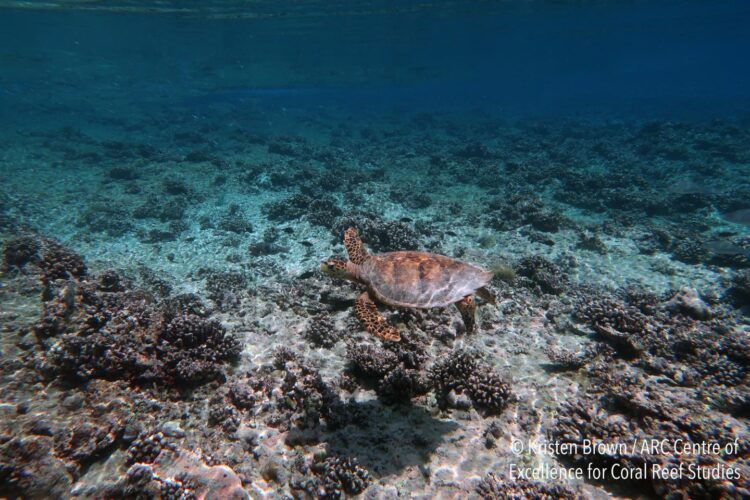
Credit: Kristen Brown.
A new study shows the coastal protection coral reefs currently provide will start eroding by the end of the century, as the world continues to warm and the oceans acidify.
A team of researchers led by Associate Professor Sophie Dove from the ARC Centre of Excellence for Coral Reef Studies at The University of Queensland (Coral CoE at UQ) investigated the ability of coral reef ecosystems to retain deposits of calcium carbonate under current projections of warming and ocean acidification.
Calcium carbonate is what skeletons are made of–and it dissolves under hot, acidic conditions. Marine animals that need calcium carbonate for their skeletons or shells are called ‘calcifiers’. Hard corals have skeletons, which is what gives reefs much of their three-dimensional (3D) structure. It’s this structure that helps protect coasts–and those living on the coasts–from the brunt of waves, floods and storms. Without coral reefs the coasts ‘drown’.
A/Prof Dove says the amount of calcium carbonate within a coral reef ecosystem depends on the biomass of hard corals. But it also depends on the combined impact of warming and acidification on previously deposited calcium carbonate frameworks. She says the results of the study indicate the rate of erosion will overtake the rate of accretion on the majority of present-day reefs.
“Today’s Great Barrier Reef has a 30% calcifier cover,” A/Prof Dove said.
“If CO2 emissions aren’t curbed, by the end-of-century a 50% calcifier cover is required to counter the physical erosion they face from storms and wave impacts,” she said.
“In addition, more than 110% calcifier cover is needed to keep up with the minimal levels of sea-level rise.”
However, A/Prof Dove says both of these scenarios are unlikely because high amounts of hard corals perish with intense underwater heatwaves. Previous studies show marine heatwaves will become chronic in the warmer months of an average year under unmitigated CO2 emissions.
The study was published in today’s Communications Earth & Environment, just after the IUCN World Heritage Outlook 3 rated the Great Barrier Reef as ‘critical’.
A/Prof Dove and her team built experimental reefs closely resembling those of shallow reef slopes at Heron Island on the southern Great Barrier Reef. For 18 months, they studied the effects of future climate scenarios on the ecosystem.
“What we saw was the insidious and accelerated loss of coastal protection under unmitigated CO2 emissions,” said co-author Professor Ove Hoegh-Guldberg, also from Coral CoE at UQ.
“Under current projections, reefs will not simply adapt. Chronic exposure to the combined impacts of ocean warming and acidification will weaken reefs. They won’t be able to re-build after disturbances such as cyclones, nor will they keep up with sea-level rise–possibly for thousands of years,” said co-author Dr Kristen Brown, also from Coral CoE at UQ.
This means many coastal areas currently protected by calcareous coral reefs will no longer be so, impacting coastal infrastructure and communities.
“The combined impact of warming with the acidification of our oceans will see more than the collapse of ecosystems,” A/Prof Dove said.
###
PAPER
Dove S, Brown K, Van Den Heuvel A, Chai A, Hoegh-Guldberg O. (2020). ‘Ocean warming and acidification uncouple calcification from calcifier biomass which accelerates coral reef decline’. Communications Earth & Environment. DOI: 10.1038/s43247-020-00054-x
IMAGES
Please note these images are for single use with this story only, not for any other story. No archival permissions are granted. Please ensure all resources carry correct attribution as listed in the file name.
CONTACT
A/Prof Sophie Dove (Brisbane, AEST)
E: [email protected]
Prof Ove Hoegh-Guldberg (Brisbane, AEST)
E: [email protected]
Dr Kristen Brown (Brisbane, AEST)
P: +61 (0)475 073 741
E: [email protected]
FOR FURTHER INFORMATION
Melissa Lyne/ Coral CoE (Sydney, AEDT)
P: +61 (0)415 514 328
E: [email protected]
Media Contact
Melissa Lyne
[email protected]
Original Source
https:/
Related Journal Article
http://dx.





